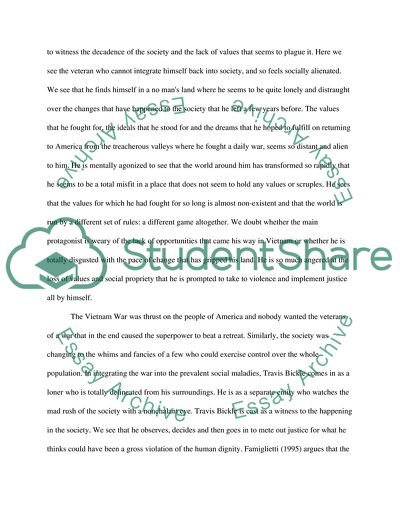Cite this document
(Aspects of Movie Taxi Driver Essay Example | Topics and Well Written Essays - 1500 words, n.d.)
Aspects of Movie Taxi Driver Essay Example | Topics and Well Written Essays - 1500 words. https://studentshare.org/visual-arts-film-studies/1734145-analytical-film-essay
Aspects of Movie Taxi Driver Essay Example | Topics and Well Written Essays - 1500 words. https://studentshare.org/visual-arts-film-studies/1734145-analytical-film-essay
(Aspects of Movie Taxi Driver Essay Example | Topics and Well Written Essays - 1500 Words)
Aspects of Movie Taxi Driver Essay Example | Topics and Well Written Essays - 1500 Words. https://studentshare.org/visual-arts-film-studies/1734145-analytical-film-essay.
Aspects of Movie Taxi Driver Essay Example | Topics and Well Written Essays - 1500 Words. https://studentshare.org/visual-arts-film-studies/1734145-analytical-film-essay.
“Aspects of Movie Taxi Driver Essay Example | Topics and Well Written Essays - 1500 Words”. https://studentshare.org/visual-arts-film-studies/1734145-analytical-film-essay.


